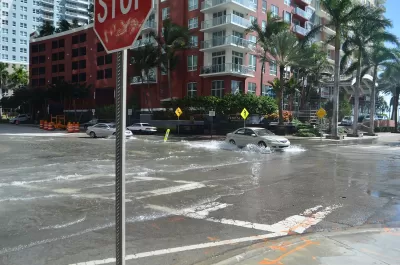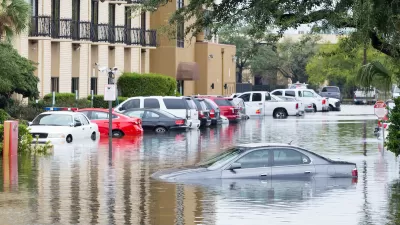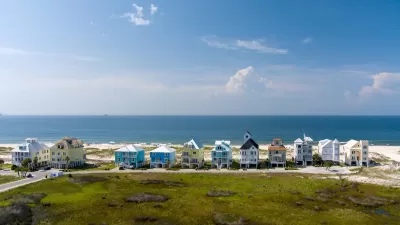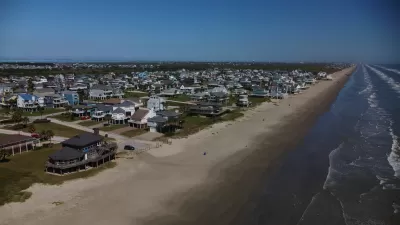Climate change is coming for the state of Florida, and it’s already showing up in the insurance market.

“As Florida’s property insurance market continues to buckle, thousands of homeowners across the state are increasingly choosing to forgo insurance, sell their homes or even leave Florida,” reports Mary Ellen Klas for the Miami Herald.
Tasha Carter, Florida’s insurance consumer advocate, is cited in the article issuing the warning about the increasing costs of climate change mitigation for Florida residents—and its increasing likelihood to drive out-migration from risky locations around the state.
Carter issued the warning as the state’s legislators gathered for a special session likely to increase insurance rates to stabilize the market.
“Florida’s property insurance market has seen double-digit percentage increases for the past few years,” according to the article. Rep. Tom Leek, an Ormond Beach Republican who is sponsoring the House insurance proposal, is quoted in the article explaining the intended goal of the special session.
“He said the package of proposals — to reduce the financial incentives for attorneys to file lawsuits against insurers, give homeowners less time to file a claim and create a $1 billion taxpayer-funded program to provide backup insurance for struggling insurers — will eventually lead to lower property insurance premiums,” writes Klas.
Meanwhile, the state’s governor remains committed to subsidizing behaviors that emit the most greenhouse gases.
Another Miami Herald article by Nicolas Rivero, published a few days later, also reveals the increasing demand for another form of protection—water pumps.
“[P]umps are an integral part of plans to help save South Florida from flooding. Thanks to climate change, stormwater systems here — and around the world — are coming under growing strain. In some cases, they’re starting to fail,” according to Rivero.
Despite Carter’s warning about residents leaving the state and the increasing cost of home insurance and mitigation measures in the state, Florida’s population growth led the nation in 2022.
FULL STORY: https://www.miamiherald.com/news/politics-government/state-politics/article269954162.html#storylink=cpy

Study: Maui’s Plan to Convert Vacation Rentals to Long-Term Housing Could Cause Nearly $1 Billion Economic Loss
The plan would reduce visitor accommodation by 25,% resulting in 1,900 jobs lost.

North Texas Transit Leaders Tout Benefits of TOD for Growing Region
At a summit focused on transit-oriented development, policymakers discussed how North Texas’ expanded light rail system can serve as a tool for economic growth.

Using Old Oil and Gas Wells for Green Energy Storage
Penn State researchers have found that repurposing abandoned oil and gas wells for geothermal-assisted compressed-air energy storage can boost efficiency, reduce environmental risks, and support clean energy and job transitions.

Santa Barbara Could Build Housing on County Land
County supervisors moved forward a proposal to build workforce housing on two county-owned parcels.

San Mateo Formally Opposes Freeway Project
The city council will send a letter to Caltrans urging the agency to reconsider a plan to expand the 101 through the city of San Mateo.

A Bronx Community Fights to Have its Voice Heard
After organizing and giving input for decades, the community around the Kingsbridge Armory might actually see it redeveloped — and they want to continue to have a say in how it goes.
Urban Design for Planners 1: Software Tools
This six-course series explores essential urban design concepts using open source software and equips planners with the tools they need to participate fully in the urban design process.
Planning for Universal Design
Learn the tools for implementing Universal Design in planning regulations.
Ascent Environmental
Borough of Carlisle
Institute for Housing and Urban Development Studies (IHS)
City of Grandview
Harvard GSD Executive Education
Toledo-Lucas County Plan Commissions
Salt Lake City
NYU Wagner Graduate School of Public Service





























